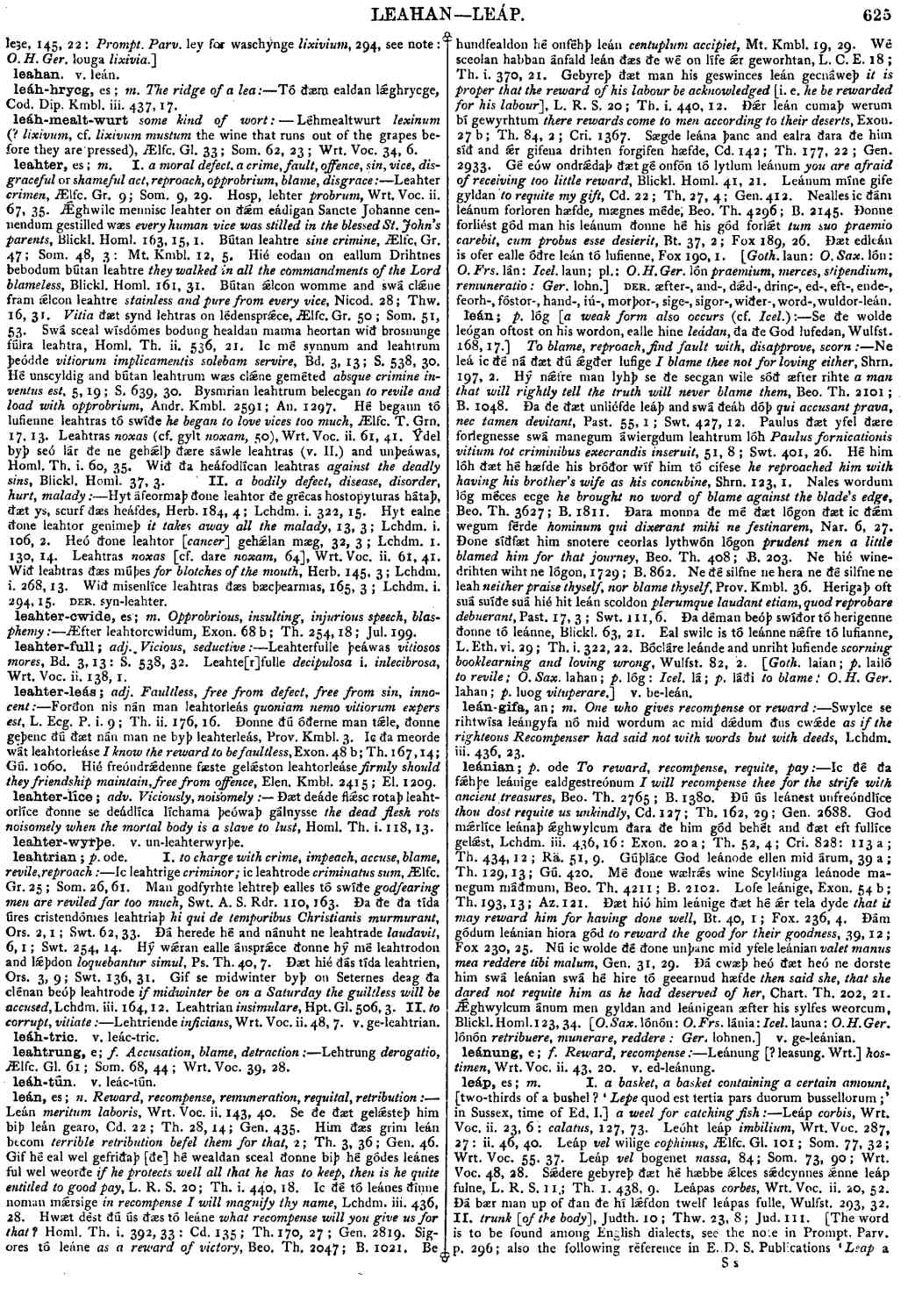leán
- verb [ strongcontracted ]
- Wulfst. 168, 17 .]
-
Ne leá ic ðé ná ðæt ðú ǽgðer lufige
I blame thee not for loving either,
- Shrn. 197, 2 .
-
Hý nǽfre man lyhþ se ðe secgan wile sóð æfter rihte
a man that will rightly tell the truth will never blame them,
- Beo. Th. 2101 ;
- B. 1048 .
-
Ða ðe ðæt unliéfde leáþ and swá ðeáh dóþ
qui accusant prava, nec tamen devitant,
- Past. 55, 1 ;
- Swt, 427, 12 .
-
Paulus ðæt yfel ðære forlegnesse swá manegum áwiergdum leahtrum lóh
Paulus fornicationis vitium tot criminibus execrandis inseruit,
- 51, 8 ;
- Swt. 401, 26 .
-
Hé him lóh ðæt hé hæfde his bróðor wíf him tó cifese
he reproached him with having his brother's wife as his concubine,
- Shrn. 123, 1.
-
Nales wordum lóg méces ecge
he brought no word of blame against the blade's edge,
- Beo. Th. 3627 ;
- B. 1811 .
-
Ðara manna ðe mé ðæt lógon ðæt ic ðǽm wegum férde
hominum qui dixerant mihi ne festinarem,
- Nar. 6, 27.
-
Ðone siðfæt him snotere ceorlas lythwón lógon
prudent men a little blamed him for that journey,
- Beo. Th. 408 ;
- B. 203 .
-
Ne hié winedrihten wiht ne lógon,
- 1729 ;
- B. 862 .
-
Ne ðé silfne ne hera ne ðé silfne ne leah
neither praise thyself, nor blame thyself,
- Prov. Kmbl. 36 .
-
Herigaþ oft suá suíðe suá hié hit leán scoldon
plerumque laudant etiam, quod reprobare debuerant,
- Past. 17, 3 ;
- Swt. 111, 6 .
-
Ða déman beóþ swíðor tó herigenne ðonne tó leánne,
- Blickl. 63, 21 .
-
Eal swilc is tó leánne nǽfre tó lufianne,
- L. Eth, vi, 29 ;
- Th. i. 322, 22 .
-
Bócláre leánde and unriht lufiende
scorning booklearning and loving wrong,
- Wulfst. 82, 2.
Bosworth, Joseph. “leán.” In An Anglo-Saxon Dictionary Online, edited by Thomas Northcote Toller, Christ Sean, and Ondřej Tichy. Prague: Faculty of Arts, Charles University, 2014. https://bosworthtoller.com/21274.
Checked: 1